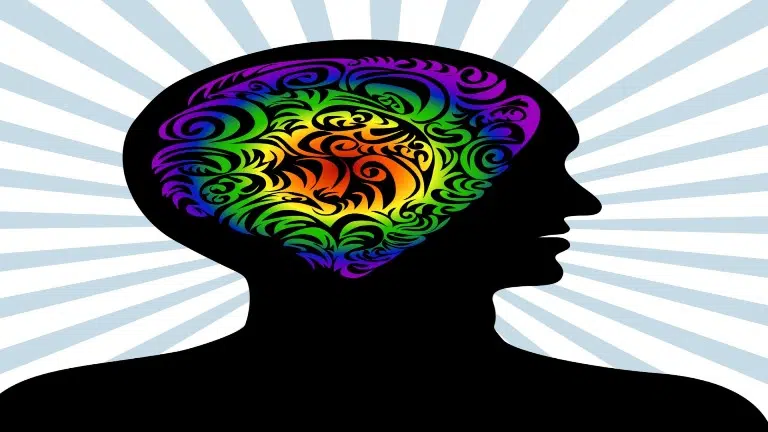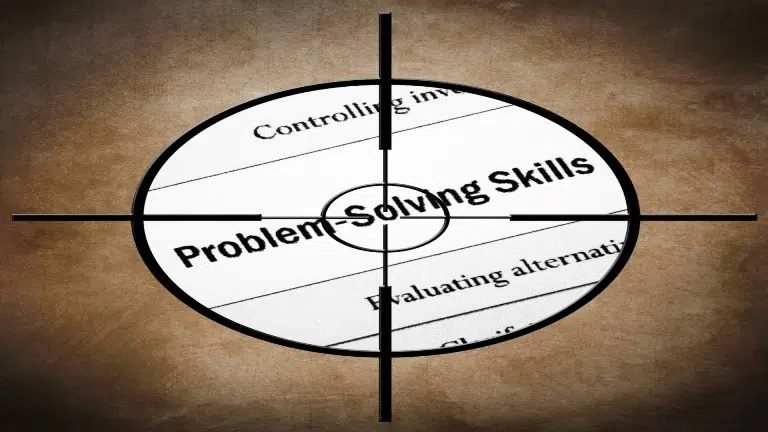Today’s world is full of information, which can make it hard to stay focused and reach our goals. Through his book Think Straight, author Darius Foroux gives readers strategies to overcome these obstacles and develop a focused mindset.
The book emphasizes the importance of thinking straight and how it can help us live a more fulfilling life. Foroux discusses the common obstacles that prevent people from thinking clearly, such as stress, negative thinking, and fear of failure.
He provides actionable advice on how to overcome these obstacles by cultivating healthy habits and developing a positive mindset.
If you can change your mind, you can change your life.”
William James

- About The Author Darius Foroux of Think Straight
- 1. Why Straight Thinking Matters
- 2. The Process of Clear Thinking
- I. Define the problem
- II. Gather information
- III. Analyze the information
- IV. Make a decision
- 3. The Power of Mental Models
- 4. Overcome Self Doubt
- 5. Emotions and Critical Thinking
- 6. The Role of Language in Thinking
- 7. The Art of Questioning
- 8. Decision-Making
- 9. Problem-Solving
- 10. Learning to Think Straight
- 11. Cognitive Biases
- 12. Skepticism
- 13. Creativity Thinking
- 14. Straight Thinking in Practice
- What you can Learn From Think Straight Book
- Takeaway
- Akio Morita Strategy | Untold Story Of Sony Success
About The Author Darius Foroux of Think Straight
Darius Foroux is a writer, entrepreneur, and productivity expert. He is best known for his work on personal development, productivity, and self-improvement.
He was born in Iran and raised in the Netherlands. He started his career as an entrepreneur in his early 20s and founded several successful businesses.
Foroux’s work has been featured in many popular publications, including Forbes, Inc., and time. His writing is practical and actionable, and he emphasizes the importance of taking small steps towards one’s goals.
Foroux believes that productivity and success are achievable by anyone who is willing to put in the work and develop the right mindset.
Foroux has authored several books, including:
- Do It Today: Overcome Procrastination, Improve Productivity, and Achieve More Meaningful Work
- Win Your Inner Battles: Defeat The Enemy Within and Live With Purpose
- The Road to Better Habits, Updated and Expanded: A simple framework for transforming your habits
- What It Takes To Be Free: Your path to personal freedom and inner peace
Now, we will discuss the summary of Think Straight Book.
1. Why Straight Thinking Matters
The author emphasizes the importance of clear and unbiased thinking when achieving success and happiness. On the other hand, distracted thinking can hold you back.
He also explained the difference between thinking in a subjective or objective way.
- Subjective thinking is influenced by personal opinions, emotions, and biases
- Objective thinking is based on facts, evidence, and logic.
Negative self-talk and limiting beliefs can sabotage your success by creating self-doubt and anxiety.

2. The Process of Clear Thinking
Clear thinking is not just about avoiding thinking traps and biases. It’s also about developing a structured and systematic approach to decision-making.
In Think Straight, Foroux outlines a simple process for clear thinking that anyone can follow. This process involves four steps:
I. Define the problem
First, you should clearly define the problem or decision that you need to make. This will help you to focus your thinking and avoid distractions.
II. Gather information
Once you’ve defined the problem, gather as much information as possible about it. This might involve doing research, talking to experts, or seeking out different perspectives.
III. Analyze the information
Once you have all the information you need, analyze it carefully and objectively. Look for patterns, connections, and insights that can help you to make a decision.
IV. Make a decision
Finally, use your analysis to make a decision or take action. Be confident in your choice, but also be willing to revise your decision if new information comes to light.
You can use this process to make better decisions and think more clearly.
3. The Power of Mental Models
Foroux explains that mental models are important because they can help people make sense of complex situations and make better decisions.
However, he notes that not all mental models are created equal, and some can actually hinder one’s ability to think straight.
The mental model of “confirmation bias” is the tendency to seek information that confirms one’s beliefs and ignore information that contradicts them.
To combat the negative effects of mental models like confirmation bias, Foroux recommends that people adopt a growth mindset.
This involves a willingness to embrace new ideas, challenge one’s own assumptions, and continuously learn and improve.

4. Overcome Self Doubt
In this chapter, Foroux delves into the negative thought patterns that can lead to self-doubt and how to overcome them.
Recognizing that self-doubt is a common experience and that everyone has it at some point. However, he emphasizes that self-doubt is a habit that can be broken with practice and mindfulness.
One way to overcome self-doubt is to become aware of the negative thoughts that lead to it.
He argues that people often engage in a ‘all-or-nothing’ mentality, in which they believe that if they are unable to achieve perfection, then they should not attempt the task at all. This type of thinking can be paralyzing and lead to self-doubt.
He provides practical strategies for overcoming this, such as tackling complex problems and seeking multiple perspectives.
5. Emotions and Critical Thinking
Foroux examines the relationship between emotions and critical thinking, and suggests strategies for harnessing emotions to enhance critical thinking abilities.
The author begins by acknowledging that emotions can sometimes cloud our judgment and lead to irrational thinking. However, he also points out that emotions can be a powerful tool for critical thinking if we learn to use them effectively.
In fact, he argues that emotions are an essential component of critical thinking. To illustrate this point, he provides examples of how different emotions can be useful in critical thinking.
- Fear can be a helpful emotion if it prompts us to think more carefully and take precautions.
- Anger, on the other hand, can be a negative emotion if it leads to impulsiveness and rash decision-making.

6. The Role of Language in Thinking
Foroux provides tips for using language effectively to enhance our critical thinking skills. And how words can affect our thoughts and perceptions.
He says that language is important for clarifying and obscuring thinking, and gives ways to use it more effectively to improve critical thinking skills.
He says that it is essential to use clear and precise language and use logic and evidence to back up arguments.
Your thoughts help you make decisions. But it’s a hard instrument to use because it’s conflicting.
Henry Ford said it best: “Thinking is the hardest work there is, which is probably the reason so few engage in it.”
Thinking is not only hard—it’s the single most important thing in life.
7. The Art of Questioning
Foroux talks about the importance of asking good questions to think straight and get new ideas.
According to him, it’s important to ask open-ended questions that encourage thoughtful discussion and exploration. He also says that you should avoid asking questions that might make responses biased.
Asking thought-provoking questions can challenge our assumptions, broaden our perspective, and gain new insights.
Moreover, asking questions lets us look at multiple options and possible outcomes, which leads to better decisions and solutions to problems.
8. Decision-Making
A decision-making process that uses critical thinking and rational analysis to make better decisions.
We often make decisions based on what others do or say.
According to Foroux, decisions involve a complex interplay of logic, emotion, and intuition. He provides strategies for making better decisions in all areas of life.
It’s not surprising that you’re making decisions based on familiarity.
But who says that being familiar is always a good thing? It’s good for certainty. You need something different from to achieve a breakthrough.
Making decisions based on heuristic techniques might ease the cognitive load, but they are far from practical.
He emphasizes the importance of the following:
- Gathering and analyzing information,
- Identifying potential risks and benefits,
- Considering the long-term implications of decisions.
9. Problem-Solving
Problem-solving is a key component of Think Straight. The authors emphasize that effective problem-solving requires a combination of analytical and creative thinking skills, and provide strategies for developing these skills.
He says that it’s important to break problems down into smaller, easier-to-manage parts, and that readers should think about different ways of looking at a problem.
As the author learned, it is impossible to eliminate them. Remember? We are incapable of controlling our consciousness.
We can only control what thoughts we follow through on.
You only have to be aware of your thoughts. Acknowledge them. But never blame yourself or say, “Why do I have these thoughts?”

10. Learning to Think Straight
The author emphasizes the importance of continual learning and improvement in order to develop thinking skill
A simple rule of thumb for generating useful thoughts is to focus on matters within your control.
That automatically gets rid of about 99% of your thoughts because you don’t have much control over life.
Only focus on what you control. Things like your:
- Desires
- Actions
- Words
- Intentions
He says that readers should try different ideas and perspectives to challenge their thinking.
He provides practical tips for incorporating critical thinking into everyday life, such as:
- Asking questions,
- Seeking evidence
- Avoiding biases
11. Cognitive Biases
The cognitive bias that affects our critical thinking skills, such as confirmation bias, anchoring bias, and the halo effect, is explored by Foroux.
We should develop shortcuts to ease the cognitive load of making decisions. Like we should filter our thought to get the right way.
Here the Author provides the idea of“change your thoughts, change your life”
He provides strategies for identifying and overcoming these biases to make more informed decisions. Which are inherent flaws in our thinking that can lead to inaccurate judgments and decisions.
The chapter also gives tips for overcoming cognitive biases, such as looking for different views and challenging our ideas.
12. Skepticism
Darius provides practical tips for developing a healthy skepticism and learning to evaluate information critically.
Skepticism is an essential component of critical thinking, and its application can help us avoid being misled by false information or misleading claims.
He cover different types of skepticism, including:
- Scientific skepticism
- philosophical skepticism,
- Religious skepticism, and show how skepticism can be used too.
Foroux also discusses the importance of being open-minded and willing to change our beliefs in light of new evidence, while still maintaining a level of healthy skepticism.
13. Creativity Thinking
He provides strategies for fostering creativity and using it to enhance critical thinking.
Darius says that creativity is the ability to come up with new ideas and ways of doing things, and critical thinking is the ability to think about and look at those ideas.
In addition to exploring the various types of creativity, he also provides examples of how critical thinking can be used to enhance each type.
He provides the tips for developing creativity thinking skills, such as:
- Brainstorming,
- Working with others
- Looking at different points of view.
14. Straight Thinking in Practice
Foroux concludes the book with a series of practical examples that demonstrate the effectiveness of logical reasoning in a variety of contexts, including the workplace, personal relationships, and social media.
Well, the point is to train your mind just like you train your body to keep fit.
For the rest of your life, you don’t go to the gym for four years. So, why don’t you exercise your mind the same way you do your body?
He says that it’s important to use thinking straight skills in all areas of life to make better decisions and be more successful.
“The life of wisdom is a life of reason. It is important to learn how to think clearly. Clear thinking is not a haphazard enterprise. It requires proper training.”
Also Read: Do It Today By Darius Foroux Book Summary
What you can Learn From Think Straight Book
- It is essential to think objectively to make sound decisions and avoid bias. An objective mindset can be developed by focusing on facts, evidence, and logic.
- Negative thinking patterns can be a major obstacle to success and happiness. The book provides practical strategies for recognizing negative thought patterns and replacing them with positive ones.
- The power of visualization is a powerful tool for achieving goals and overcoming obstacles. Use visualization techniques to create a clear mental picture of what you want to achieve and how to get there.
- Taking action is essential for making progress and achieving success. Take small, consistent steps towards your goals, rather than waiting for a perfect moment or relying on motivation alone.
- Self-discipline is a key ingredient for success in any area of life. Developing self-discipline and staying motivated in the face of challenges and setbacks.
Packed with practical tips and real-world examples, this insightful book is a must-read for anyone looking to think more clearly and make better decisions. Don't miss out – read 'Think Straight' today!"
Takeaway
The author focuses on strategies for developing a clear and focused mind.
By cultivating healthy habits, developing a positive mindset, setting clear goals, and managing our time effectively, we can overcome common obstacles that prevent us from thinking straight.
It provides practical advice and strategies for improving our thinking and achieving our goals.
It’s important to take small steps toward our goals and develop a positive mindset that lets us pursue our dreams.
